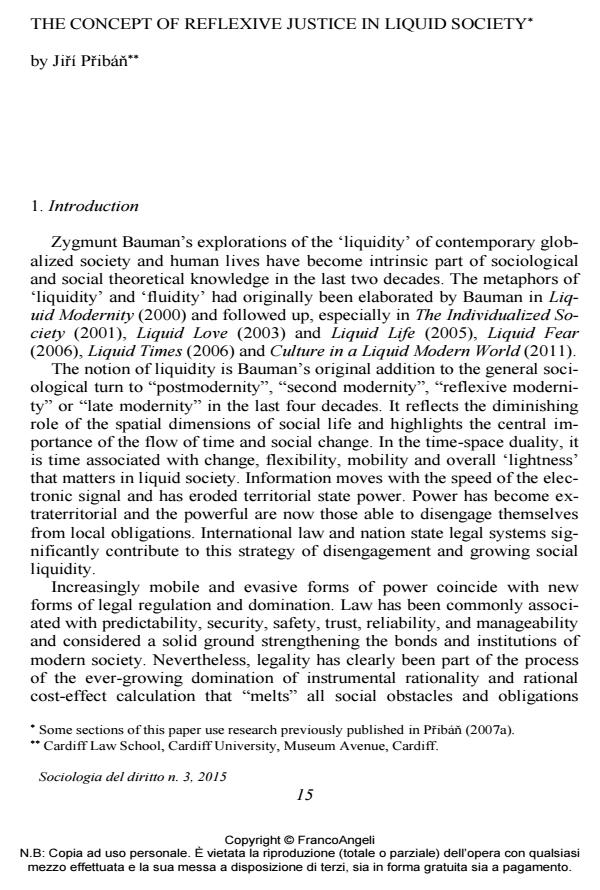The concept of reflexive justice in liquid society
Journal title SOCIOLOGIA DEL DIRITTO
Author/s Jiri Priban
Publishing Year 2016 Issue 2015/3
Language English Pages 19 P. 15-33 File size 260 KB
DOI 10.3280/SD2015-003002
DOI is like a bar code for intellectual property: to have more infomation
click here
Below, you can see the article first page
If you want to buy this article in PDF format, you can do it, following the instructions to buy download credits

FrancoAngeli is member of Publishers International Linking Association, Inc (PILA), a not-for-profit association which run the CrossRef service enabling links to and from online scholarly content.
Drawing on Bauman’s concept of liquid modernity and society, this paper discusses the topic of increasingly mobile and evasive forms of power and coeval new forms of legal regulation and domination affecting the concept of justice. Law has adapted to social liquidity and accommodated the techniques and operation of deregulation, devolution and disengagement profoundly affecting the concept of justice, its fragmentation and reflexivity. Using Bauman’s sociological concepts and examples of recent European society and integration, this paper argues that the concept of justice in liquid society cannot be constructed as moralist criticisms of law’s estrangement from its social origins or human values and calls for a return to laws’ ‘roots’, as portrayed in various concepts of social norms or community standards and values. The legal system of modern liquid society rather constructs its internal understanding of social conflicts and formalises their modes of resolution through artificial and self-referential operations. A social theory of justice therefore needs to focus on its limits, internal forms of self-regulation, conceptual self-reference and reflexive interference with the social environment.
Keywords: Liquid society - Legal system - Power - Governance - Democracy
Jiri Priban, The concept of reflexive justice in liquid society in "SOCIOLOGIA DEL DIRITTO " 3/2015, pp 15-33, DOI: 10.3280/SD2015-003002